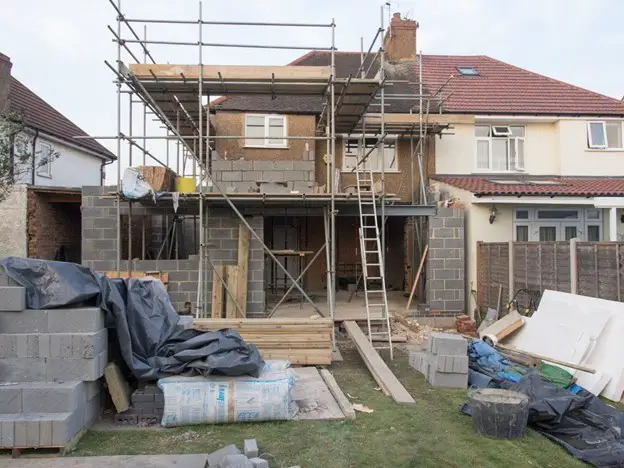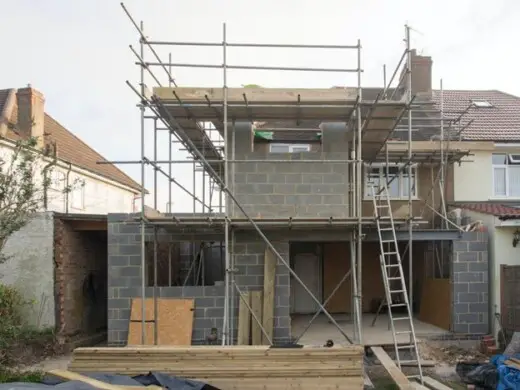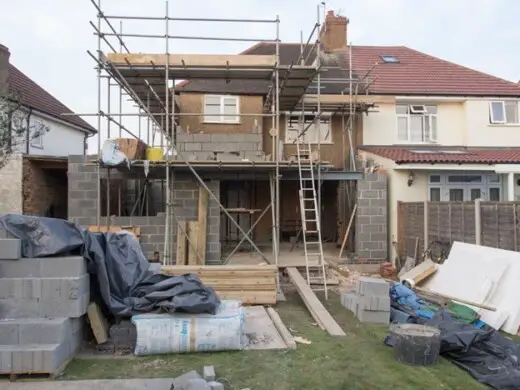Importance of quality soil when house building tips, Home build guide, Property construction advice
Importance Of Quality Soil When House Building Guide
16 August 2022
Explaining The Importance Of Quality Soil When Building A House
There are lots of things to think about when you’re involved in construction work. Should you buy the materials before the building project begins, and how about testing the soil? If the house isn’t built on a reliable foundation, you could encounter a wide range of issues later on. In this article, we’ll discuss why it’s so important to have quality soil when building a house.
To Ensure The Stability Of Your Home
A firm and reliable foundation ensures that your house will be stable and won’t shift or move over time. If you don’t have a stable foundation, your house could literally crumble and collapse. This would have financial implications and risk the safety of the home’s occupants. A key way to ensure you have a good foundation is by investing in quality soil. Contact a local professional to help you determine the best type for your property. They can also help with any other questions or concerns about building a stable foundation.
If you study Australian law AS2870, you’ll see it’s mandatory for new construction projects to have soil assessments. They involve professional soil testing by people who are licensed and accredited with current qualifications. These people provide free quotes, whether the work’s required for home or industrial purposes. Site investigation services also do things like geotechnical drilling, site investigation, and effluent treatment plant design.
To Avoid Expensive Repairs
It’s vital that the foundation is able to support the weight of your house. If you don’t have quality soil when building it, you’ll later have issues that consume your time and money. Some examples of expensive repairs that could be required are replacing the foundation, jacking up the house, or even demolishing the whole building. Other related issues that could arise include:
- cracks in the foundation
- doors and windows that don’t close properly
- floors that are uneven or bouncy
- walls that are leaning or bulging
- cracks in the walls or ceilings
- foundation settling or heaving
- mold or mildew in the basement
- water in the basement
Whilst having soil checks may not seem like a big deal at the time, it’ll definitely come back to bite you later if you don’t have them! If you take the time to check everything now, you’ll save yourself a lot of money in the long run.
To Protect Your Investment
For most homeowners, their home is the most expensive thing they’ve ever bought. That’s why they need to steward it as their greatest asset. This includes making regular repairs and replacing or upgrading things whenever necessary. Many businesses are dependent on having physical premises to conduct their work and to make money. If they have problems with their buildings, it can reduce their productivity and cut into their profits.
Property investors purchase land and property to either do it up and resell or to rent it out for profit. The last thing they want is an uninsurable building or one that they can’t resell at full price (if at all!). If they miss the fact that there are structural issues or problems with the foundation, this could be a costly mistake from which they may never financially recover. In every scenario, it’s vital that the relevant building has been correctly constructed. In turn, it can serve its purpose and have maximum longevity.
Clay Soil Can Be Problematic
One of the main issues with clay soil is that it can shrink and swell depending on the weather conditions. When the clay’s too dry, it can crack and shift. When it’s too wet, it can become mushy and unstable. Clay soil doesn’t drain well, which can be a problem if you live in an area that gets a lot of rain. To address this issue, you need to install drainage pipes in your foundation. The foundation of a house made of clay soil can be subject to cracking and shifting (the walls may crack too), which can lead to serious problems later on. Fortunately, there are things you can do to prevent this if you take the steps earlier enough.
One way to counteract the issue is to build a foundation that’s specifically designed for clay soil. This type of foundation uses special techniques and materials that help stabilize the clay soil beneath it. If you don’t have a lot of experience with building foundations, it’s vital to hire a professional who does. Another way to deal with clay soil is to mix it with other types of soil before using it for your foundation. This will make the overall mixture more stable and less likely to crack or shift. There are a few different ways to do this, so you’ll once again need to talk to a professional about the best way to proceed.
Sandy Soil Can Be Problematic
Sandy soil can be difficult for a number of reasons. First, it can erode easily, which means that your foundation could end up being unstable. Second, sandy soil doesn’t hold moisture well, so your home could be at risk during periods of drought. Finally, it’s more likely to allow water to seep through foundations and into your home.
To address these issues, you’ll need to take some special precautions upfront. First, make sure that you have a good foundation design that will resist erosion. Second, use a moisture barrier to help keep the sand in place and prevent it from drying out too much. Finally, make sure that your home’s drainage system is designed to handle the extra water that might seep through the foundation. By taking these preventative measures, you can build a safe and stable home on sandy soil.
It’s worth doing more research and checking out moisture content tests, Atterberg limits tests, and compaction tests. Once you understand things like the specific gravity or dry density of soil, you’ll be better placed to make some wise decisions. By applying what you’ve read today, you’ll end up enjoying a new building that’s fit for purpose, with a foundation containing soil that will present no future issues.
Comments on this guide to Importance of quality soil when house building article are welcome.
Architecture
Virgin Hotels Edinburgh Victoria Street
Comments / photos for the Importance of quality soil when house building advice page welcome






